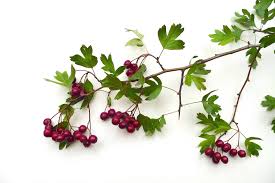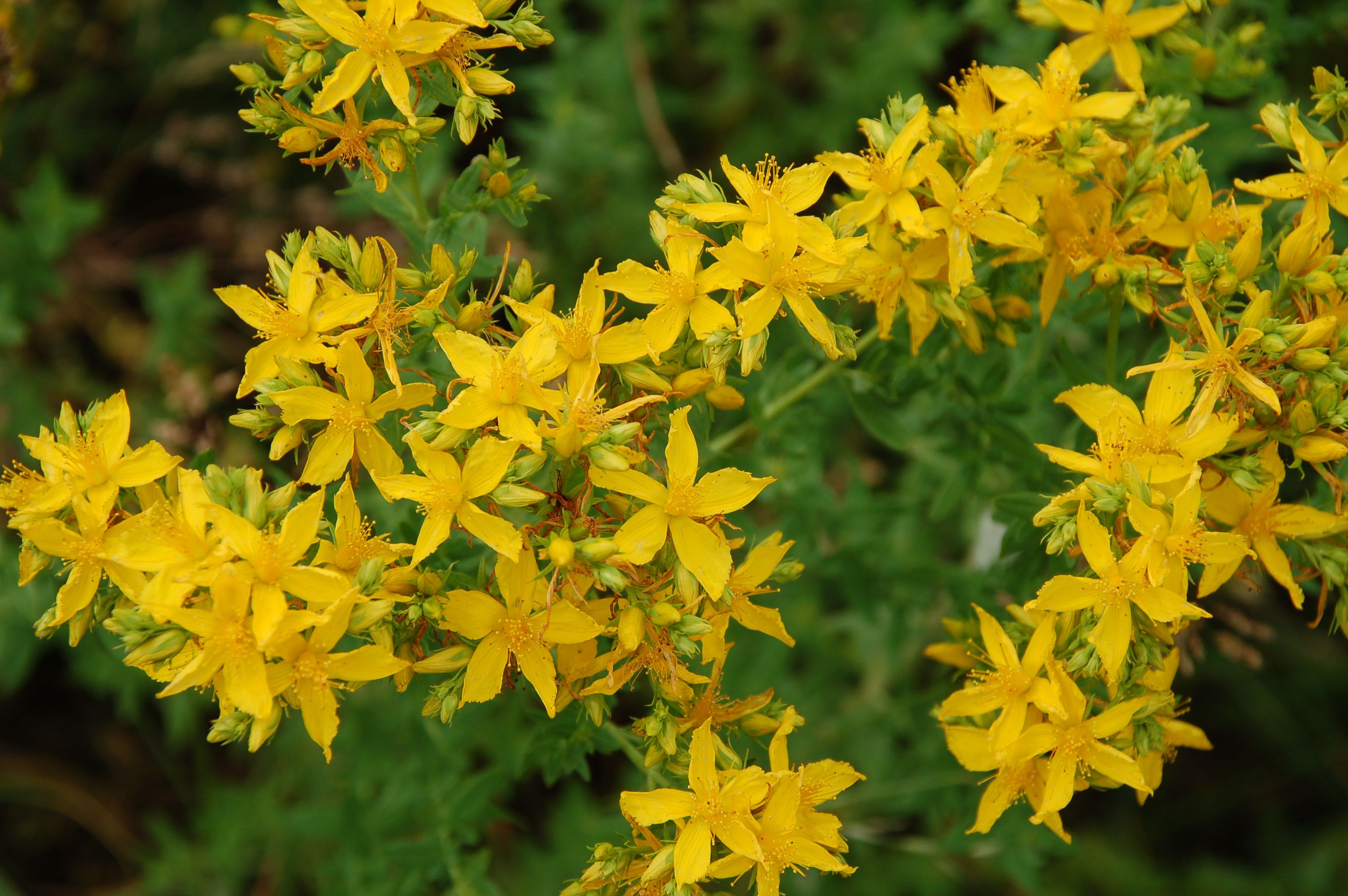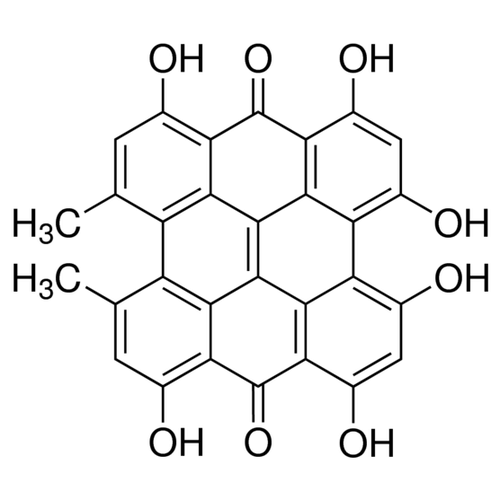- Plant-Based Protein
- Natural Plant Flavours
- Food and Dietary Supplement Ingredients
- Fruit Juice Powder
- Animal Nutrition Ingredients
- Water Soluble Ingredients
- Cosmetic Ingredients
- Unveiling the Therapeutic Potential of Rabdosia Rubescens: A Comprehensive Review
- What are the medicinal properties of Rabdosia Rubescens?
- Nutritional value of Orange Juice Powder compared to fresh orange juice.
- Processing Conditions and Nutritional Value of Orange Juice Powder
- Exploring the Versatility of Herbal Extracts in Food Flavors

What are the health benefits of hawthorn leaf?
Welcome to our blog! Today, we are diving into the world of hawthorn leaf and uncovering its incredible health benefits. Whether you're a fan of herbal remedies or simply curious about natural alternatives, hawthorn leaf is definitely worth exploring.


St. Johns wort Extract and benefits,side effect, uses,dosage, Anti-Depression
St John's wort is a herbal remedy that has been used for hundreds of years to treat mental health problems. Today it is mainly used as an over-the-counter remedy to treat mild and moderate depression, and sometimes seasonal affective disorder (SAD), mild anxiety and sleep problems. St John’s wort Extract is made from Hypericum perforatum. It contains many active substances, including hypericin and hyperforin, which are thought to affect mood.
What Is St. John's Wort Used for Today?
Today, St. John's wort is a widely used treatment for depression in Germany, other parts of Europe, and the United States.
Most studies of St. John's wort have evaluated individuals with major depression of mild to moderate intensity.Typical symptoms include depressed mood, lack of energy, sleep problems, anxiety, appetite disturbance, difficulty concentrating, and poor stress tolerance. Irritability can also be a sign of depression.
Taken as a whole, research suggests that St. John's wort is more effective than placebo and approximately as effective as standard drugs. Furthermore, St. John's wort appears to cause fewer side effects than many antidepressants.
St. John’s wort contains, among other ingredients, the substances hypericin and hyperforin. Early reports suggested that St. John's wort or synthetic hypericin might be useful against viruses such as HIV , but these have not panned out. However, there is some evidence hyperforin may be able to fight certain bacteria, including some that are resistant to antibiotics.
What you may get from us: If you're developing a product that contains St. John's wort or hypericin and hyperforin .I think you can find the information or products you need here.
Simple production process in our factory: After the plant is collected, raw material will be processed by solvent extraction, separation and purification, filtration, concentration, purification,drying and other steps to form the final products. We may also design a prouction process based on your special requirements.
Through the physical and chemical processes, those compunds you don't want was removed, and the compunds preferred was accumulated. Which make the products achieve the best effects.
How to use St. John's wort extract powder: What you need is just use our products to formulate your products. It can be mixed with your other ingredients directly to make premix products. It can also be directly used for filling capsules or making tablets. And if your dosage form is tincture or solution, It can also be suitable. Easy to say, our products are ready for Formula products.
|
St. John's Wort Extract |
||
|
CAS No. |
84082-80-4 |
|
|
Appearance |
Powder |
|
|
Color |
Dark Brown |
|
|
Partical size |
Normally pass through 80mesh |
|
|
Pack size |
25 kg per paper drum |
|
|
Purity of active compunds |
0.3% hypericins, or 2-3%hyperforin |
By UV, HPLC |
|
For pricing or more information, please call 86 29 88444632 or send an email to Sales@nutraherbsource.com |
||
General Information
Common Names of raw material: Hypericum perforatum, known as perforate St John's-wort, common Saint John's wort and St John's wort.
Latin Names: Hypericum perforatum
Plant Description:

St. John's wort is a perennial plant. It generally reaches a height of 0.3 to 0.61 m, Some place it may get heights of 1.5 m. The plant has oval-shaped leaves and yields golden-yellow flowers that bloom from June to September. The flower petals have black or yellow glandular dots and lines. There are approximately 370 species in the genus Hypericum, which is derived from the Greek words "hyper" and "eikon" meaning "over an apparition," alluding to the plant's ancient use to ward off evil spirits. "Perforatum" refers to the leaf's appearance; when held up to light, the translucent leaf glands resemble perforations. Harvest of the plant for medicinal purposes occurs in July and August, and the plant material must be dried immediately to avoid loss of potency. The dried herb consists of the plant's flowering tops.
Constituents of Hypericum perforatum:
Several reports regarding the chemical components in St. John's wort are available.More than 150 constituents have been identified that interact in synergistic, additive, and antagonistic manners to produce a variety of actions. The most commonly described constituents are naphthodianthrones, flavonoids, phloroglucinols, and essential oils. The naphthodianthrones (hypericin, pseudohypericin) and the phloroglucinols (hyperforin, adhyperforin) are the most characterized.

|
Hypericin |
|
|
C30H16O8 |
|
|
504.443 g/mol |
|
What Is Depression?

Depression (major depressive disorder) is a common and serious medical illness that negatively affects how you feel, the way you think and how you act. Fortunately, it is also treatable. Depression causes feelings of sadness and/or a loss of interest in activities once enjoyed. It can lead to a variety of emotional and physical problems and can decrease a person’s ability to function at work and at home.
Depression symptoms can vary from mild to severe and can include:
Feeling sad or having a depressed mood
Loss of interest or pleasure in activities once enjoyed
Changes in appetite — weight loss or gain unrelated to dieting
Trouble sleeping or sleeping too much
Loss of energy or increased fatigue
Increase in purposeless physical activity (e.g., hand-wringing or pacing) or slowed movements and speech (actions observable by others)
Feeling worthless or guilty
Difficulty thinking, concentrating or making decisions
Thoughts of death or suicide
Symptoms must last at least two weeks for a diagnosis of depression.
Also, medical conditions (e.g., thyroid problems, a brain tumor or vitamin deficiency) can mimic symptoms of depression so it is important to rule out general medical causes.
Mechanism of Action:How Does St. John’s Wort Work for Depression?
Like pharmaceutical antidepressants, St. John's wort is thought to raise levels of neurotransmitters in the brain, such as serotonin, norepinephrine, and dopamine.
The active ingredient of St. John’s wort is not known. Extracts of St. John’s wort are most often standardized to the substance hypericin. Another ingredient of St. John's wort named hyperforin has shown considerable promise as the most important ingredient. Evidence from animal and human studies suggests that it is the hyperforin in St. John’s wort that raises the levels of neurotransmitters. Nonetheless, there may be other active ingredients in St. John's wort also at work. In fact, 2 double-blind trials using a form of St. John's wort with low hyperforin content found it effective. The bottom line remains that more research is necessary to discover just how St. John’s wort acts against depression.
Health Benefits of St. John’s Wort:
1. Works as an Antidepressant
Many studies show that St. John’s wort may help fight mild to moderate depression and anxiety and has fewer side effects than most other prescription antidepressants, such as loss of sex drive. However, there are St. John’s wort drug interactions, so the herb should be taken only under the guidance of a healthcare professional, especially if you already take medications for depression.
In a 2017 meta-analysis including 27 clinical trials and over 3,800 patients, researchers concluded that St. John’s wort has comparable efficacy and safety to SSRIs.” Studies show that St. John’s wort uses seem to work as well as selective serotonin reuptake inhibitors (SSRIs), a popular type of antidepressant that doctors often prescribe first to treat depression, such as Prozac, Celexa and Zoloft.
Researchers aren’t exactly sure how St. John’s wort works for depression; some have suggested that the herb acts similar to a SSRI because it makes more serotonin, dopamine and norepinephrine available in the brain. These neurotransmitters help improve your mood and can be responsible for treating symptoms of depression.
In studies using the rat forced swimming test, an animal model of depression, St John’s wort extracts induced a significant reduction of immobility. In other experimental models of depression, including acute and chronic forms of escape deficit induced by stressors, St John’s wort extract was shown to protect rats from the consequences of unavoidable stress.
St. John’s wort uses also include improving mood in people with seasonal affective disorder (SAD), a type of depression that occurs during the winter months because of lack of sunlight. SAD is usually treated with light therapy, and there is some evidence that using St. John’s wort together with phototherapy works even better as a way to beat the winter blues.
2. Relieves PMS Symptoms
Because of its positive effects on mood, St. John’s wort has been used to alleviate and naturally remedy PMS symptoms, such as depression, chronic fatigue and hormonal imbalance.
A study done at the Institute of Psychological Sciences in the United Kingdom included 36 women aged 18–45. They had regular menstrual cycles and were diagnosed with mild PMS. The women were randomly assigned to receive either St. John’s wort tablets at 900 milligrams a day or identical placebo tablets for two menstrual cycles; then the groups switched doses and the next two cycles.
Symptoms were rated daily throughout the trial using the Daily Symptom Report, and the women reported on feelings of depression, aggression, hormone balance and hormonal stimulation. The trials showed that St. John’s wort is superior to a placebo in improving physical and behavioral symptoms of PMS, but there were no significant effects compared with a placebo in treating mood and pain-related PMS symptoms.
Researchers reported that daily treatment with St. John’s wort was more effective than placebo treatment for the most common physical and behavioral symptoms associated with PMS, and further work is needed to determine whether pain and mood symptoms benefit from longer treatment duration.
3. Improves Mood During Menopause
St. John’s wort uses include being tested as an herbal remedy that relieves the psychological and vegetative symptoms of menopause. A study published in Advance in Therapy and performed in Berlin investigated 12 weeks of treatment with St. John’s wort; 111 women, ages 43 to 65, took one 900 milligram tablet three times daily. All of the participants experienced symptoms characteristic of the pre- and postmenopausal state.
The treatment outcome was evaluated by the Menopause Rating Scale, a self-designed questionnaire for assessing sexuality, and the Clinical Global Impression scale. To test the results, the incidence and severity of typical psychological, psychosomatic and vasomotor symptoms were recorded after five, eight and 12 weeks of treatment.
Substantial improvement in psychological and psychosomatic symptoms was observed, and menopausal complaints diminished or disappeared completely in 76 percent of the women; in addition to this, sexual well-being also improved after treatment, displaying that St. John’s wort uses include providing natural menopause relief.
4. Fights Inflammation and Skin Irritations
St. John’s wort has antibacterial properties and may also help fight inflammation that’s at the root of most diseases. When applied topically, it relieves symptoms associated with minor wounds and skin irritations, working as a natural treatment for eczema, a home remedy for burn relief and a way to naturally treat hemorrhoids.
St. John’s wort shows anti-inflammatory properties due to its inhibitory effects on pro-inflammatory genes like cyclooxygenase-2, interleukin-6 and inducible nitric-oxide synthase. These genes play a critical role in chronic inflammatory diseases.
St. John’s wort extracts have been used for thousands of years to treat cuts and abrasions. Its usefulness in reducing inflammation is well-known and appears to be related to its ability to serve as an antibacterial agent.
In a 2003 study at the Department of Dermatology at the Freiburg University Clinic in Germany, 18 patients with eczema were treated twice daily over a period of four weeks. After the trial, the severity of the skin lesions improved on sites of treatment, and skin tolerance and cosmetic acceptability was good or excellent with the St. John’s wort cream.
And in a 2017 case study, St. John’s wort extract provided significant efficacy for the treatment of pressure sore wounds in an intensive care unit patient.
5. Improves Symptoms of Obsessive Compulsive Disorder
Obsessive compulsive disorder is a mental disorder where people perform certain routines repeatedly and are unable to control their thoughts or activities. This can be a debilitating condition, so the data that suggests the positive effects of St. John’s wort are indeed promising.
A study done at the Dean Foundation for Health Research and Education analyzed 12 patients who were diagnosed with OCD; the participants were treated for 12 weeks, with a fixed dose of 450 milligrams of 0.3 percent St. John’s wort twice daily. The study included weekly evaluations that were conducted with the Yale-Brown Obsessive Compulsive Scale, the Patient Global Impressions of Improvement Scale and the Clinical Global Impressions of Improvement scale, and a monthly evaluation with the Hamilton Rating Scale for Depression.
Significant changes occurred within one week and continued to increase throughout the trial. At the endpoint, five of the 12 patients were rated “much” or “very much improved” on the clinician-rated CGI, six were “minimally improved,” and one had “no change.” The most common side effects reported were diarrhea and restless sleep. Because improvement began at one week, and grew over time, researchers believe that St. John’s wort can be a helpful tool in treating OCD, and more placebo-controlled studies should take place in the future.
6. Has Anti-Cancer Properties
Researchers have found that St. John’s wort stops the growth of tumor cells and can treat both nonmelanoma and melanoma skin cancer cells. Because St. John’s wort has shown to have significant antitumor activity, researchers suggest that it’s an effective cancer-fighting treatment that’s available in abundance because it’s a naturally occurring plant.
Data from a 2003 study done in Spain indicates that hyperforin, a derivative found in St. John’s wort, is a compound that interferes with key events in angiogenesis — the formation and growth of cells. This confirms the recent and growing evidence about a potential role of this compound in cancer and metastasis inhibition and makes it a promising drug for further evaluation in the treatment of angiogenesis-related pathologies.
7. May Support Smoking Cessation
A systematic review conducted in Canada found that St. John’s wort may promote smoking cessation by alleviating tobacco withdrawal symptoms and decreasing negative effects through various mechanisms. Researchers suggest that the herb is able to inhibit monoamine oxidase A and B, and is involved in dopamine and noradrenaline reuptake. These actions help to reduce symptoms associated with smoking cessation.
8. Anti-inflammatory activity
Animal and in vitro data
In vitro studies revealed that St. John's wort at low concentrations is capable of increasing immunity, but at high concentrations can suppress immunity. A number of signaling pathways elicited by compounds in Hypericum have been identified in human and animal cell cultures and in vivo in animal models. Quercetin, amentoflavone, hyperforin, and hypericin have been shown to individually reduce nuclear factor kappa B, tumor necrosis factor alpha (TNF-alpha), cyclooxygenase-2, p38, and other key factors in inflammatory signaling pathways. Combining the individual compounds altered the resulting activities, reflecting apparent interactions among the constituents of St. John's wort when combined. Additionally, bioactivities of some compounds were dependent on light, whereas others were light independent. These interactions appear to provide a balance of both pro- and anti-inflammatory activities, as well as phototoxic and photoprotective actions. Pseudohypericin was a necessary element in the anti-inflammatory process, as it was required for the reduction in prostaglandin E2.Similarly, St. John's wort ethanolic extract inhibited the increase in neutrophil recruitment and the inflammatory biomarkers interleukin 1beta (IL-1beta) and TNF-alpha as well as the decrease in glutathione that was induced by acetaminophen toxicity in mice. Subsequently, AST and ALT levels were also decreased. A dose-dependent reduction in acetaminophen-induced lethality was also observed.
9. Antimicrobial activity
In vitro data
Antibacterial activity has been described.Extracts of Hypericum Perforatum and Hypericum humifusum containing differing amounts of hypericin (60 mg/g and 90 mg/g, respectively) and hyperforin (8.5 mg/g and 30 mg/g, respectively) exhibited very strong inhibitory and bactericidal activity against several gram-positive and gram-negative bacteria as well as Candida albicans. Strongest minimum inhibitory concentrations (MICs) (200 to 250 mcg/mL) were observed against Enterococcus faecium, Staphylococcus aureus, and Staphylococcus epidermidis by H. humifusum extract and against C. albicans by H. perforatum extract. The lowest minimum bactericidal concentrations (350 mcg/mL) were observed for S. epidermidis, Bacillus subtilis, and C. albicans, and were fairly comparable between the 2 extracts. Weakest effects were seen for Salmonella typhimurium and 2 strains of Pseudomonas aeruginosa.
10. Antiviral/HIV activity
Antiviral activity has been reported for influenza, herpes simplex types 1 and 2 (HSV-1, HSV-2), Sindbis virus, poliovirus, retrovirus infection in vitro and in vivo, murine cytomegalovirus, and hepatitis C. Hypericin and pseudohypericin exert unique effective antiviral actions, possibly because of nonspecific associations with cellular and viral membranes. Hypericin and pseudohypericin inhibit a variety of encapsulated viruses, including HIV.
In vitro data
3-Hydroxy lauric acid obtained from H. perforatum exhibited light-independent, anti-HIV activity in an in vitro experiment.
Clinical data
Clinical trials of St. John's wort use in HIV are limited by the prevalence of interactions between St. John's wort and standard HIV therapy. In 1999, a phase 1 study evaluating hypericin's effects in 30 patients concluded that hypericin had no antiretroviral activity, with phototoxicity being observed.
Antiviral activity may involve a photoactivation process, as exposure of hypericin to fluorescent light markedly increases antiviral activity. An example of this was demonstrated in a case series in which an approximate 50% improvement was observed in acyclovir-recalcitrant herpes skin lesions treated with a phototherapy protocol that included H. perforatum (10% extract containing 1% w/v hypericin and 0.5% w/v chlorophyll) as the photosensitizer compared to phototherapy with red laser therapy alone. Patients ranged in age from 7 to 77 years and presented with HSV-1, HSV-2, or combination-type lesions.
Dosage
The typical dosage of St. John's wort is 300 mg 3 times a day of an extract standardized to contain 0.3% hypericin. Some products are standardized to hyperforin content (usually 2% to 3%) instead of hypericin. These are usually taken at the same dosage.
Safety and side effects
St. John's wort taken alone usually does not cause immediate side effects. In a study designed to look for side effects, 3,250 people took St. John's wort for 4 weeks. 43 Overall, about 2.4% reported problems. The most common complaints were mild stomach discomfort (0.6%), allergic reactions—primarily rash—(0.5%), tiredness (0.4%), and restlessness (0.3%).
Drug Interactions
Herbal experts have warned for some time that combining St. John's wort with drugs in the Prozac family (SSRIs) might raise serotonin too much and cause a number of serious problems. Recently, case reports of such events have begun to trickle in. This is a potentially serious risk. Do not combine St. John's wort with prescription antidepressants except on the specific advice of a physician. Since some antidepressants, such as Prozac, linger in the blood for quite some time, you also need to exercise caution when switching from a drug to St. John's wort.
Antimigraine drugs in the triptan family (such as sumatriptan, or Imitrex) and the pain-killing drug tramadol also raise serotonin levels and might interact similarly with St. John's wort.
However, perhaps the biggest concern with St. John's wort is that it appears to decrease the effectiveness of numerous medications, including protease inhibitors and reverse transcriptase inhibitors (for HIV infection), cyclosporine and tacrolimus (for organ transplants), digoxin (for heart disease), statin drugs (used for high cholesterol), warfarin (Coumadin) (a blood thinner), chemotherapy drugs, oral contraceptives , tricyclic antidepressants , protein pump inhibitors (like Prilosec), atypical antipsychotics like olanzapine or clozapine (for schizophrenia), anesthetics, and the new heart disease drug ivabradine. In fact, there are theoretical reasons to believe that this herb might reduce the effectiveness or otherwise interact with about 50% of all medications.
- Prev:Soybean Extract (Soybean Isoflavones) and benefits,side effect, uses,dosage, Phytoestrogen
- Next:Ursolic Acid and benefits,side effect, uses,dosage,anti-inflammatory











